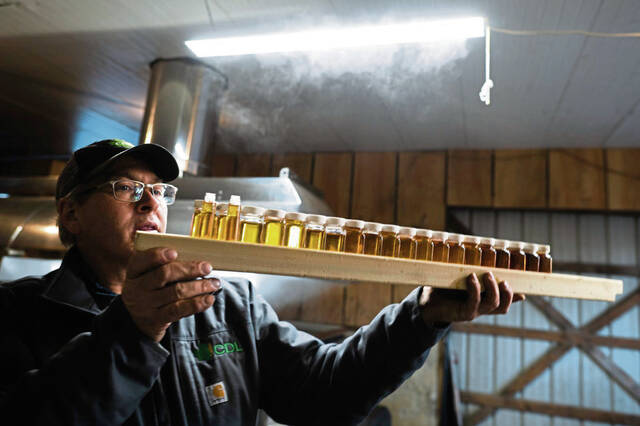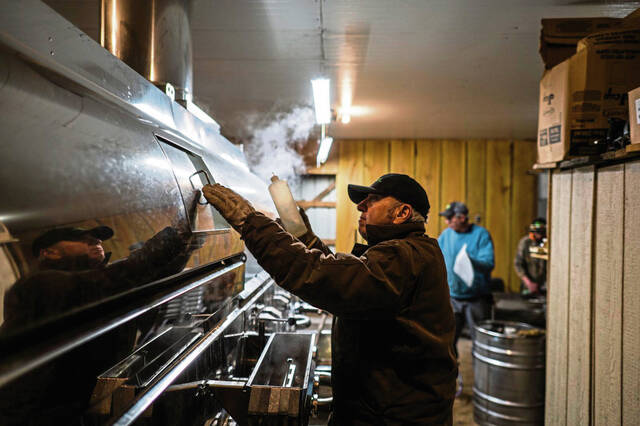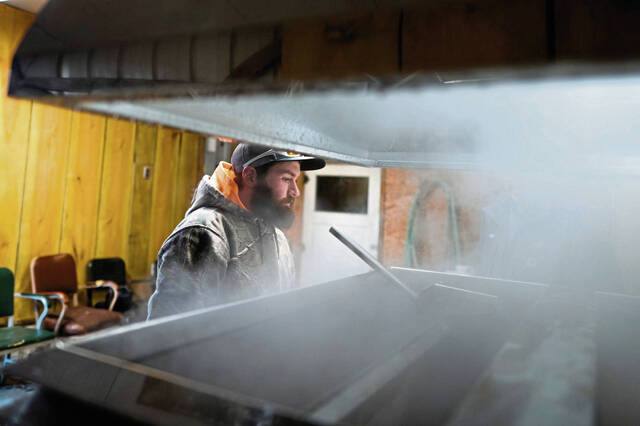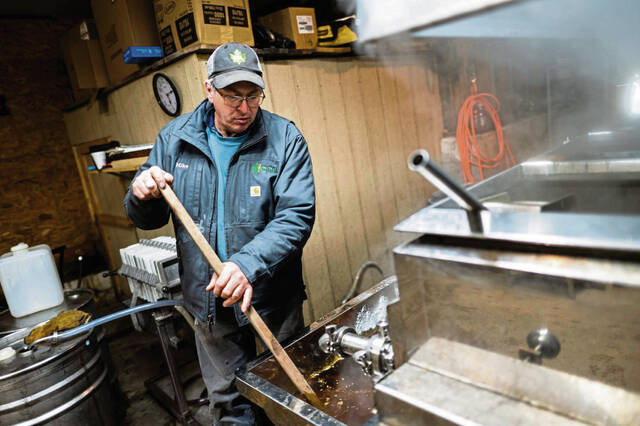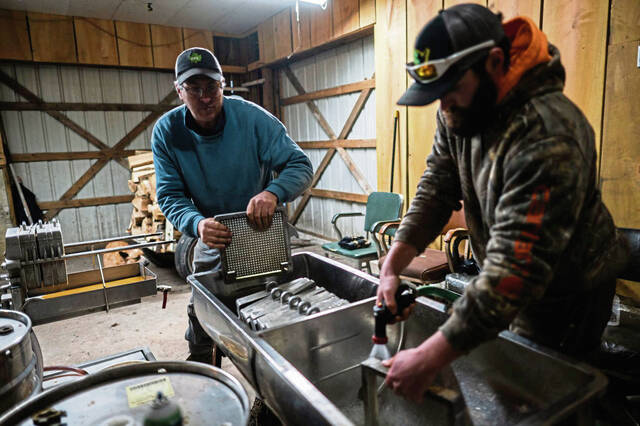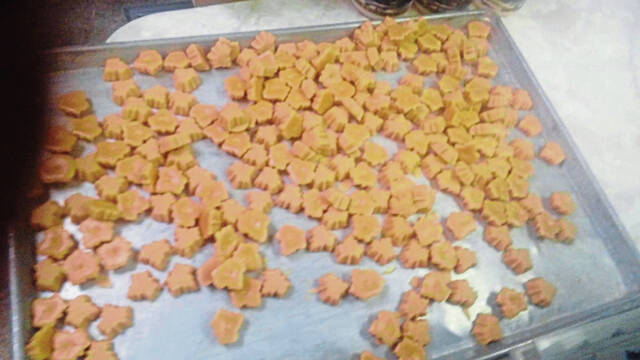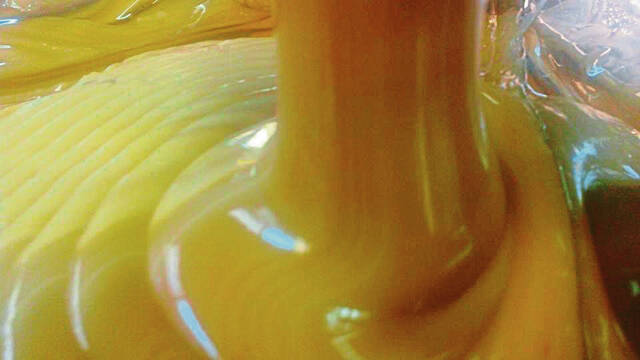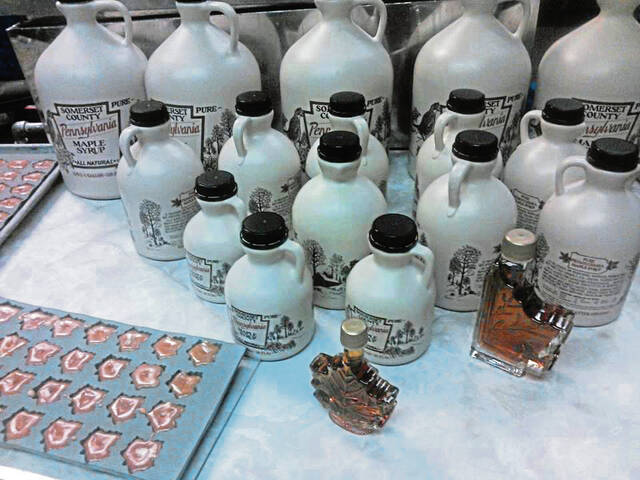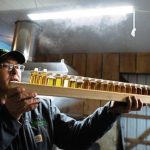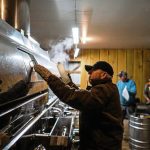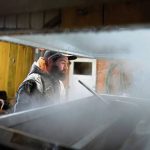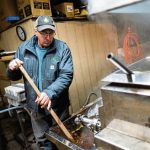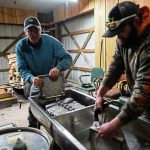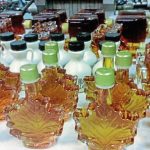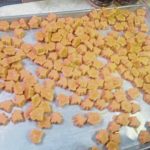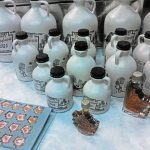Warm fronts and sap can make for a sticky situation during maple season.
With an early start to sap harvesting season in Western Pennsylvania, the Lynch family at Baer Brothers Maple Camp has been working overtime to produce their fresh syrup.
“There’s no such thing as free time during maple season,” said Mike Lynch, co-owner of Baer Brothers.
Baer Brothers Maple Camp is a family-run business. Lynch owns the company with his wife, Sherry, and two sons. The company is a labor of love, with both sides of the family, friends and neighbors pitching in to help. Lynch’s older son comes home from college on weekends to help with the work.
Baer Brothers offers a medley of maple products including syrup, candies and cream. The Lynch family can personally attest to how well their products tackle a sweet tooth.
“We use our syrup and sugar for sweetener all the time instead of other sweeteners,” Mike Lynch said. “Even when we bake, we use at least some maple sugar.”
Mike Lynch said his personal favorite is their maple cream “with just a little salt on top” that he uses as a pretzel dip.
None of these sweet treats would be possible without the grueling and unpredictable sap harvesting process.
Most days start at 5 or 6 a.m. with Lynch checking tanks and sap lines. Production rates and schedules are completely weather based, and the recent warm fronts have upped the syrup ante. This year, Baer Brothers had to begin its production earlier.
“This year we started towards the end of January, so we’re way ahead of last year,” Lynch said. “We’ve actually made over half of our crop by the same date we started last year.”
According to Lynch, warm weather has the same effect on sap that it does on unstored milk. Because of the recent warm fronts, producers have to work at top efficiency to boil the sap.
“It’s a fresh product, so if it’s hot out, or hotter than it should be, it spoils just like milk,” Lynch said. “We have to process it as fast as we can. As long as this weather doesn’t bite us too hard, we can keep making syrup. But if it’s too warm, it’s going to shut some of us down.”
Sap harvest season is a demanding time that requires most maple camps to begin prep work in the late fall season. Lynch said most of Baer Brothers’ preparations began in late fall and continued into early winter. Workers check the tap lines for holes and replace spouts if needed. Being prepared for the weather-dependent harvest is imperative.
“We tap a new hole in a tree every year,” Lynch said. “Say a squirrel bites through a line. The flow won’t come through. It would be like trying to get water through a hose with a hole in it. Replacing a line takes time. In maple trees, any day that you don’t get sap from the tree, you never harvest that particular flow of sap again.”
According to Lynch, an ideal weather pattern would be nights cold enough to freeze the sap inside the trees, preventing the tree from turning sugars into starch too quickly. This, paired with warm days that encourage sap to flow easily through the lines, makes for the perfect recipe for high-quality maple syrup.
“There are days where we have 10,000 to 15,000 gallons of sap from the trees,” Lynch said. “Right now, it’s not really sweet — since the sap isn’t that sweet right now, it takes more to make syrup.”
When the weather gets too warm, a tree is no longer in “hibernation.” Once it starts to heat up, a tree’s respiration process is kicked into gear and that affects the carbon storage, which lowers the sugar content in the sap. When the trees’ sap is bitter, workers have to collect more of it to reach a regular sweetness level for the syrup. Lynch said that it has taken an average of 80 gallons of sap to produce one gallon of syrup this season.
After the sap is collected, it is stored, filtered and run through a reverse osmosis system, Lynch said.
“Basically, instead of making drinking water, we throw the drinking water portion away,” Lynch said. “Out of every 100 gallons of sap that comes through our reverse osmosis filtering system, we throw 75 to 85 gallons of pure water away.”
After the water is gone, the concentrated sap is left with the sugar, minerals and bacteria and is ready to be cooked. Once the sap is boiled down, syrup is created and ready to be packaged for sale.
“The day ends when we get all of the sap boiled,” Lynch said. “There are some days where we’ll boil until 10, 11, 12 at night.”
Lynch expects to continue the harvest season until mid March as long as the weather holds out.


